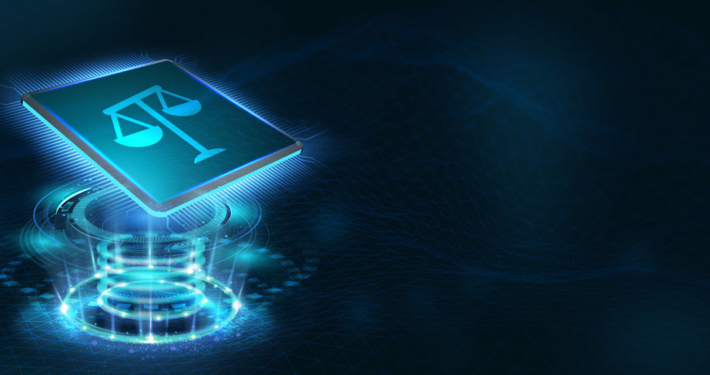INFORMATION TECHNOLOGY
27 August 2021
Author: Petar Milutinović
Digital rights and freedoms on the Internet - (Im)possibility of theirregulation in Serbia
The work arrived within the Open call for texts: Send us your essays & get published!
The Internet is a place of endless human potential. It is the tool that gives us the freedom of expression greater than any other that existed before it. Also, the Internet is a true generation-defining invention.
Can the Internet nowadays be a medium through which netizens[1] in Serbia can exercise certain rights and freedoms guaranteed by The Constitution of the Republic of Serbia and national laws? Is there a minimum set of online services to which netizens are entitled? Is there a specific regulatory body that has the authority to control the content that is published on websites and social networks? Does the corpus of digital rights – those rights and freedoms relevant for the use of the Internet (e.g. the right to access the Internet, freedom of expression, freedom of speech, freedom of association, right to privacy, protection of intellectual property) – fall under the guarantees of national regulation?
Using the Internet makes performing everyday activities much easier – from undertaking business activities and using e-services to learning and having fun. However, what is the Internet and what does it have to do with the freedoms and rights of citizens? According to the Law on Electronic Communications, the Internet is “a global electronic communication system composed of a large number of interconnected computer networks and devices, which exchange data using a common set of communication protocols”.[2] Bearing in mind that netizens use and access computer networks and devices, we can say that they exercise their material rights and freedoms at the same time in the digital sphere, i.e. in cyberspace. Namely, the corpus of digital rights and freedoms exercised online does not represent qualitatively anything new in relation to the rights and freedoms exercised offline. Material rights and freedoms of citizens, guaranteed by The Constitution of the Republic of Serbia and national laws, include the corpus of digital rights in a broader sense, and the only difference is that they are realized in cyberspace through a certain medium – information and communication technologies (ICT).
Relevant determinants of this claim are the resolutions of the United Nations Human Rights Council[3] on the promotion, protection and enjoyment of human rights on the Internet, which recognize the need for the rights and freedoms that citizens enjoy offline to be guaranteed online as well. It was clearly emphasized the need for States to tackle “security issues, in accordance with their international obligations, with regards to human rights, in particular concerning the freedom of opinion and expression, freedom of association and privacy”[4]. In addition, the importance of the private sector and business is recognized in that they are encouraged to work on technical solutions to protect the confidentiality of digital communications and to be responsible for respecting human rights, as set out in the Guiding Principles on Business and Human Rights: Implementing the United Nations “Protect, Respect and Remedy” Framework.[5]
At the same time, when accessing the Internet, netizens in the European Union have access to a minimum set of online services, as defined by the European Electronic Communications Code.[6] These services include access to – e-mail; search engines that enable the search of all types of information and their retrieval; basic online training and education tools; newspapers and news available on the Internet; purchasing or ordering goods and services online; job search and job searching tools; professional networking; Internet banking; using eGovernment services; social networks; as well as calls or video calls. It is quite certain that the same will apply to the citizens of Serbia as the domestic legislation is harmonized with the acquis communautaire within the process of the European integration of Serbia.
However, although there is no single regulatory body at the international level whose competence would be to manage or control the content on the Internet, this does not mean that there is no control over what is posted on websites and social networks. In fact, there are national regulatory bodies that establish jurisdiction so as to take action and supervise criminal acts committed on the Internet. For example, “in the case of posting inappropriate and illegal content, such as sexual abuse of children or hate speech, state authorities can react in accordance with general rules”.[7]
Consequently, in Serbia, certain digital rights and freedoms can be legally restricted, just as freedom of speech, i.e. opinion and expression, can be “restricted by law, if necessary to protect the rights and reputations of others, preserve the authority and impartiality of the court and protect public health, morals of a democratic society and national security of the Republic of Serbia “.[8] There is no doubt that these legal norms also apply to cyberspace, i.e. to digital rights and freedoms, because the competence over their application, as well as over criminal activities carried out on the Internet, in addition to other executive bodies, has a special Department for high-tech crime at the Higher Public Prosecutor’s Office in Belgrade. Based on that, we can say that digital rights and freedoms on the Internet are subject to national legislation and that the Internet can be a medium through which netizens in Serbia can exercise certain rights and freedoms.
[1] User, citizen of the Internet (“netizen” – “Internet citizen”)
[2] Law on Electronic Communications (“Sl. glasnik RS”, No. 44/2010, 60/2013 – Decision of CC, 62/2014 and 95/2018 – other Law), Article 4, paragraph 1, point 15.
[3] United Nations, Human Rights Council, Resolutions – 20/8 of 5 July 2012; 26/13 of 26 June 2014; 32/13 of 1 July 2016; and 38/7 of 17 July 2018 on the promotion, protection and enjoyment of human rights on the Internet
[4] United Nations, Human Rights Council, Res. 38/7 of 17 July 2018 on the promotion, protection and enjoyment of human rights on the Internet
[5] Ibid.
[6] Directive (EU) 2018/1972 of the European Parliament and of the Council of 11 December 2018 establishing European Electronic Communications Code, Annex V.
[7] Dušan V. Popović, Marko Jovanović, “Pravo interneta: odabrane teme”, University of Belgrade – Faculty of Law, 2017, p. 33.
[8] The Constitution of the Republic of Serbia (“Sl. glasnik RS”, No. 98/2006), Article 46.


 Information technology
Information technology
 Environment
Environment












Share with friends